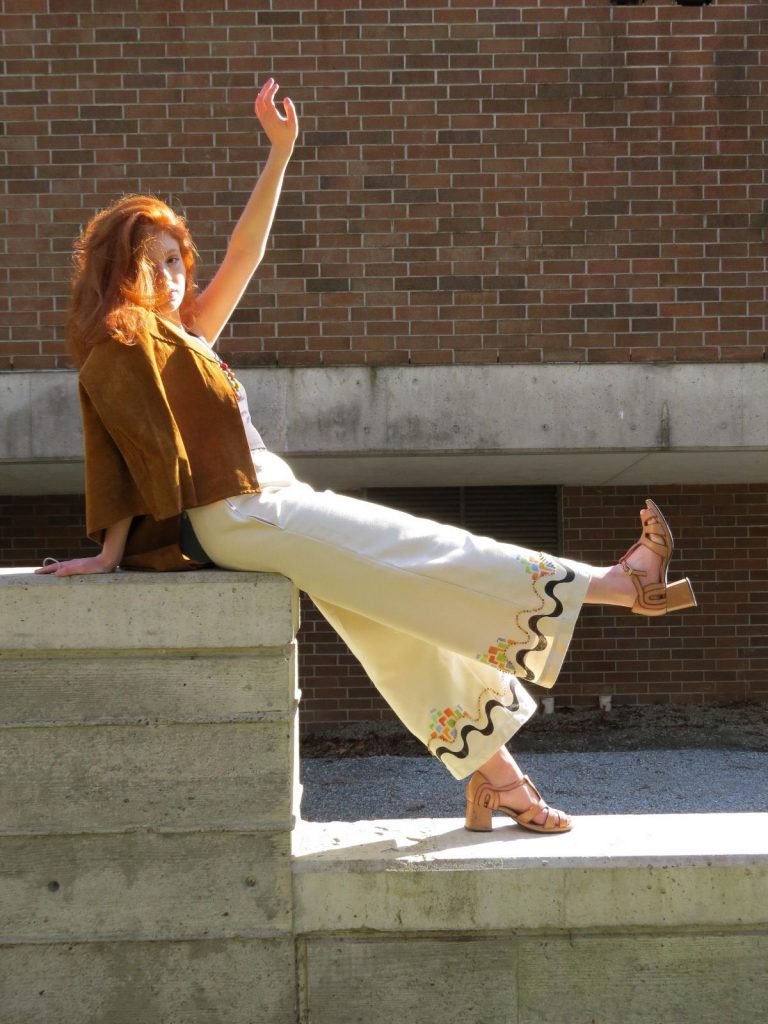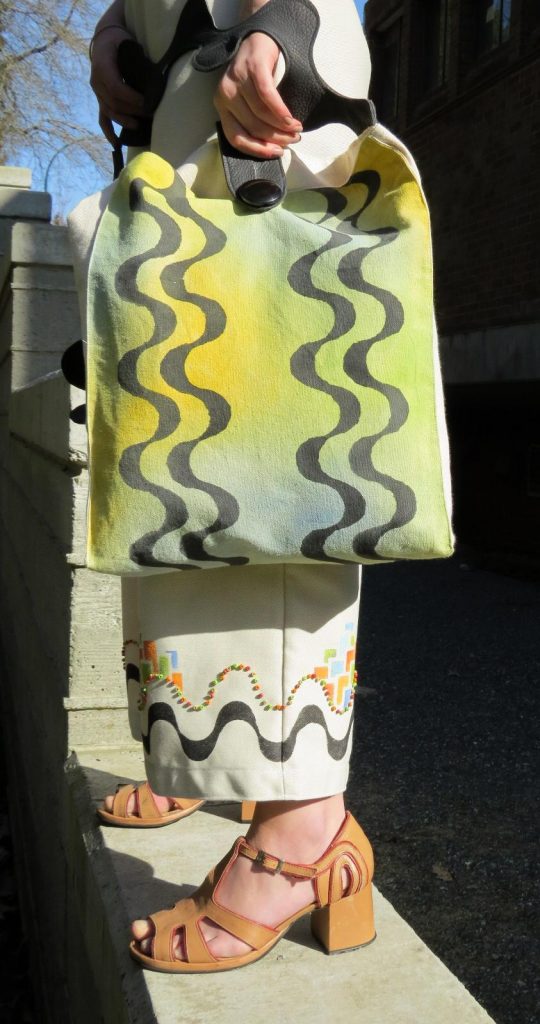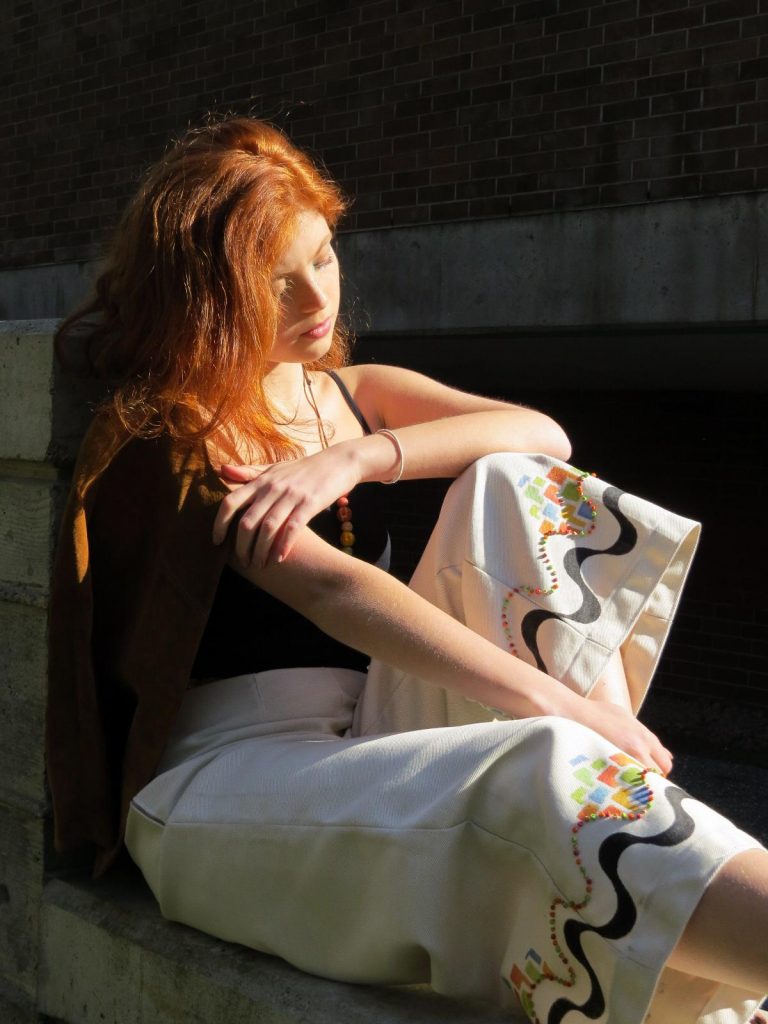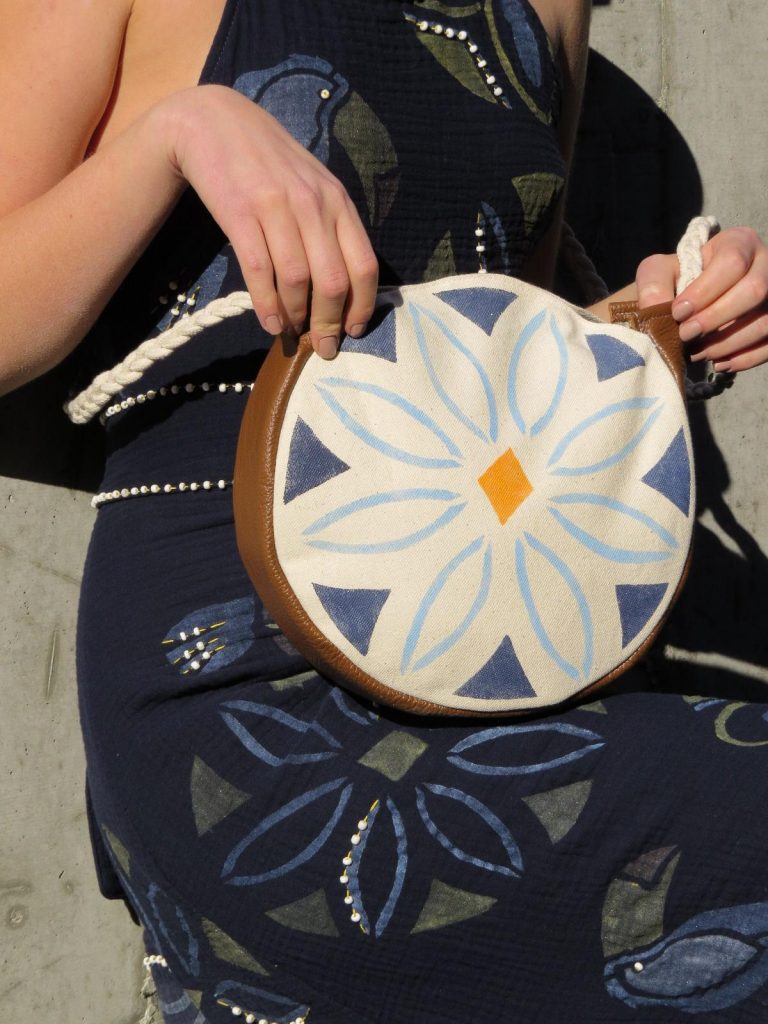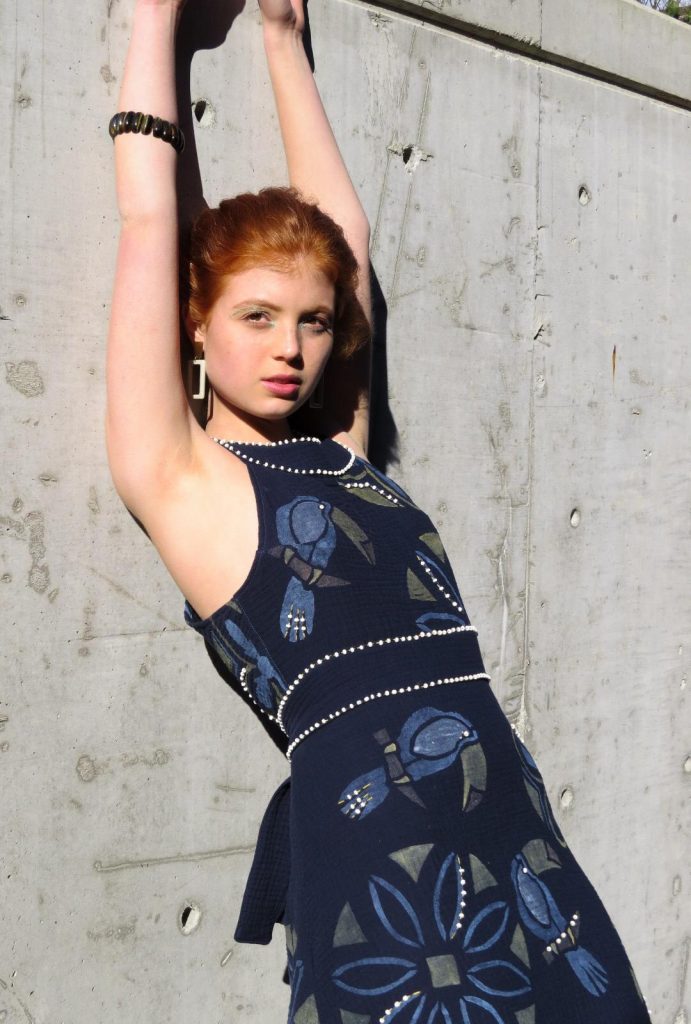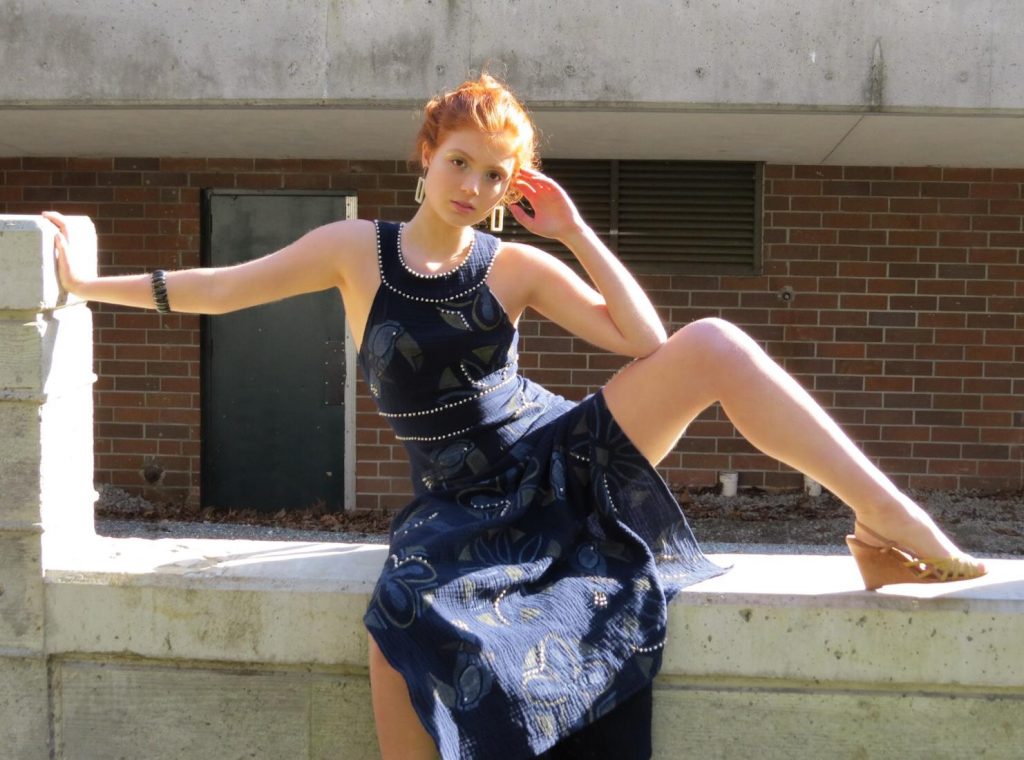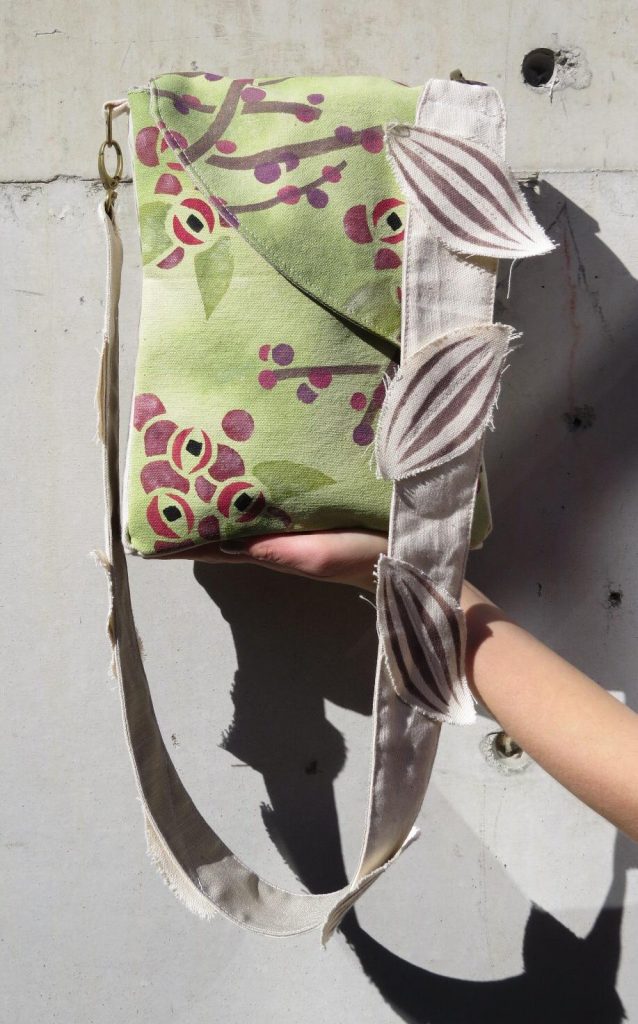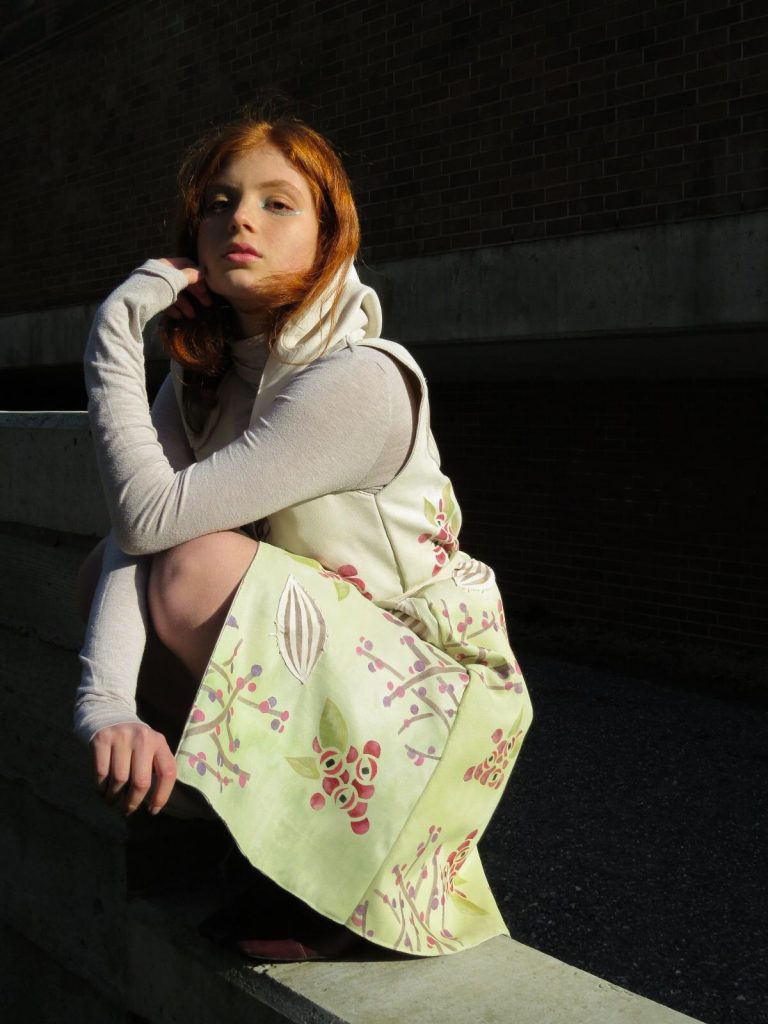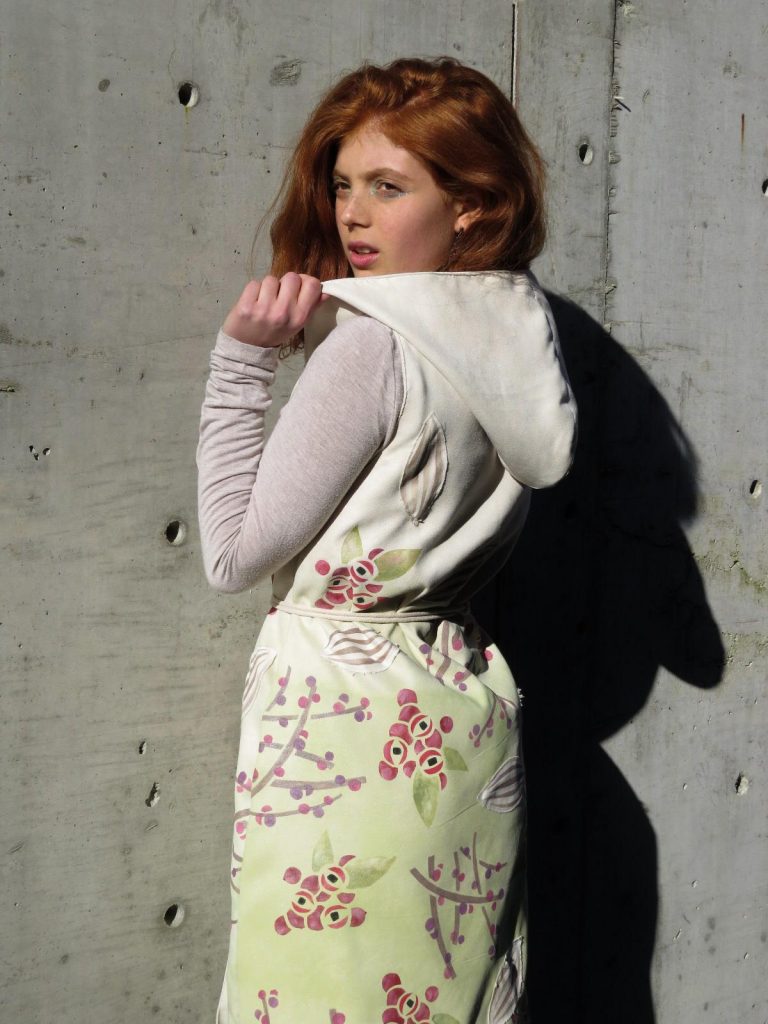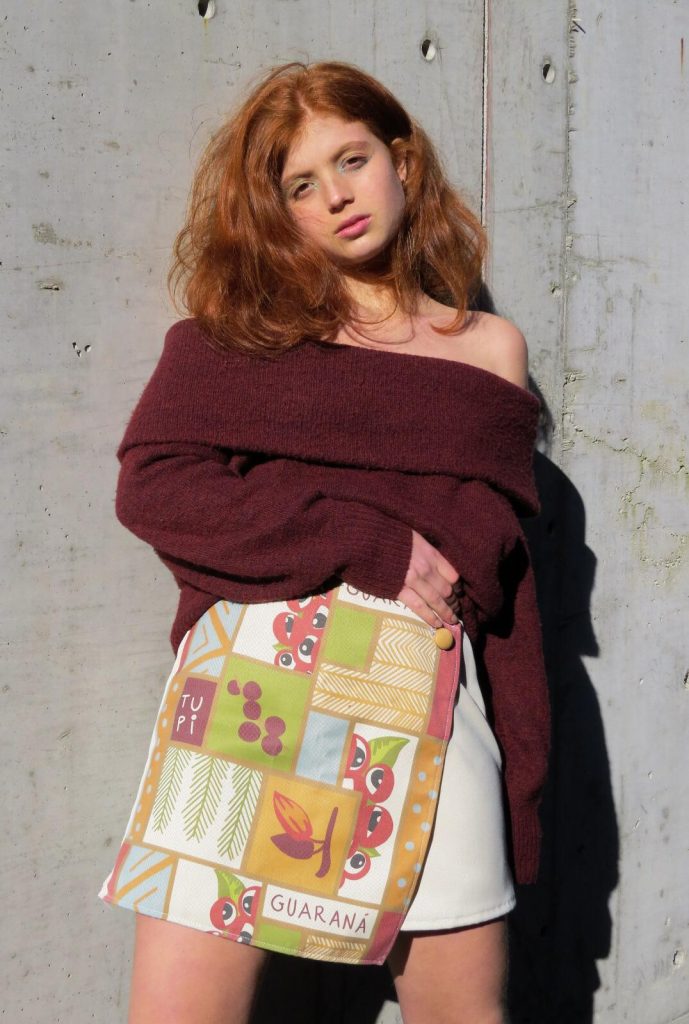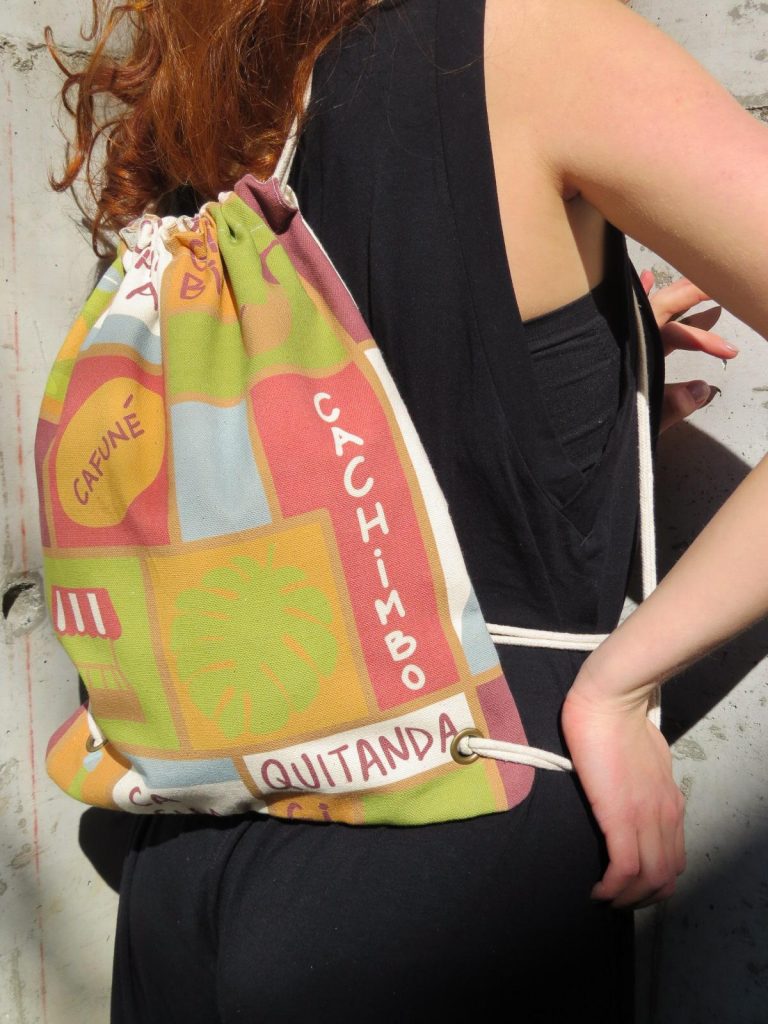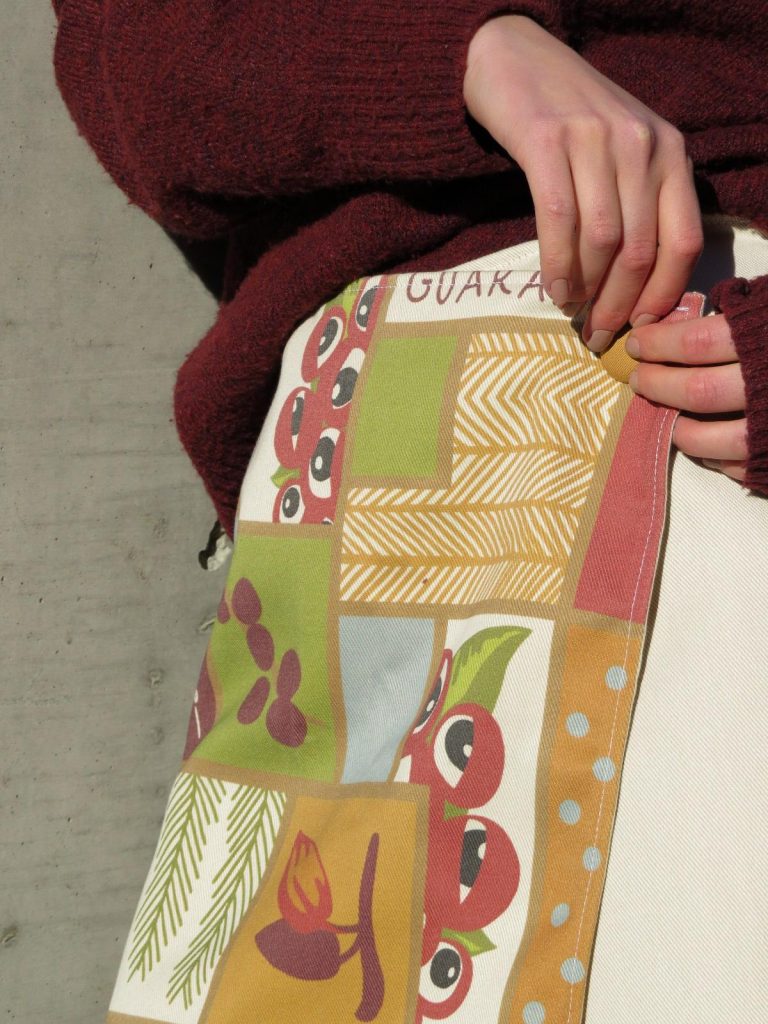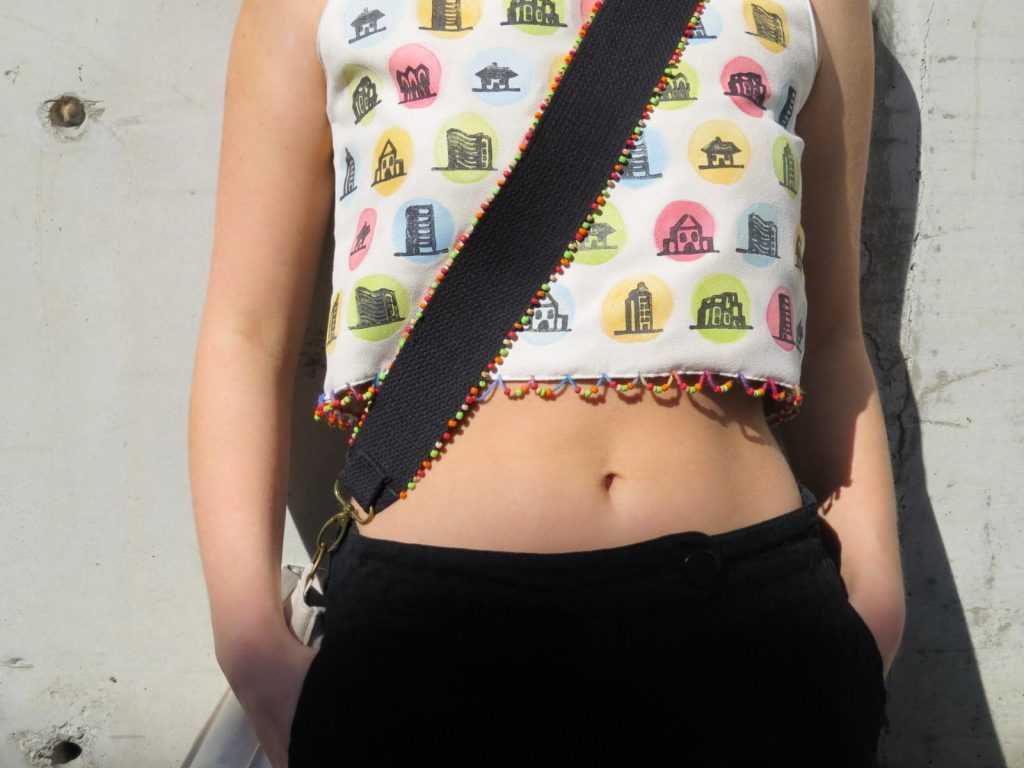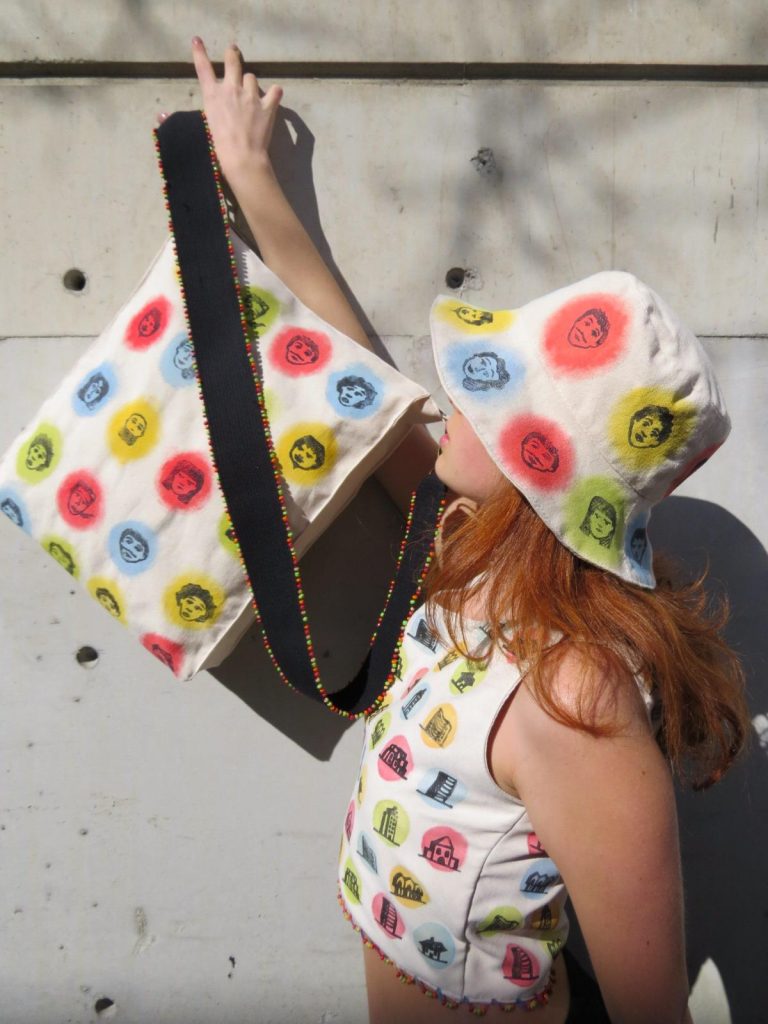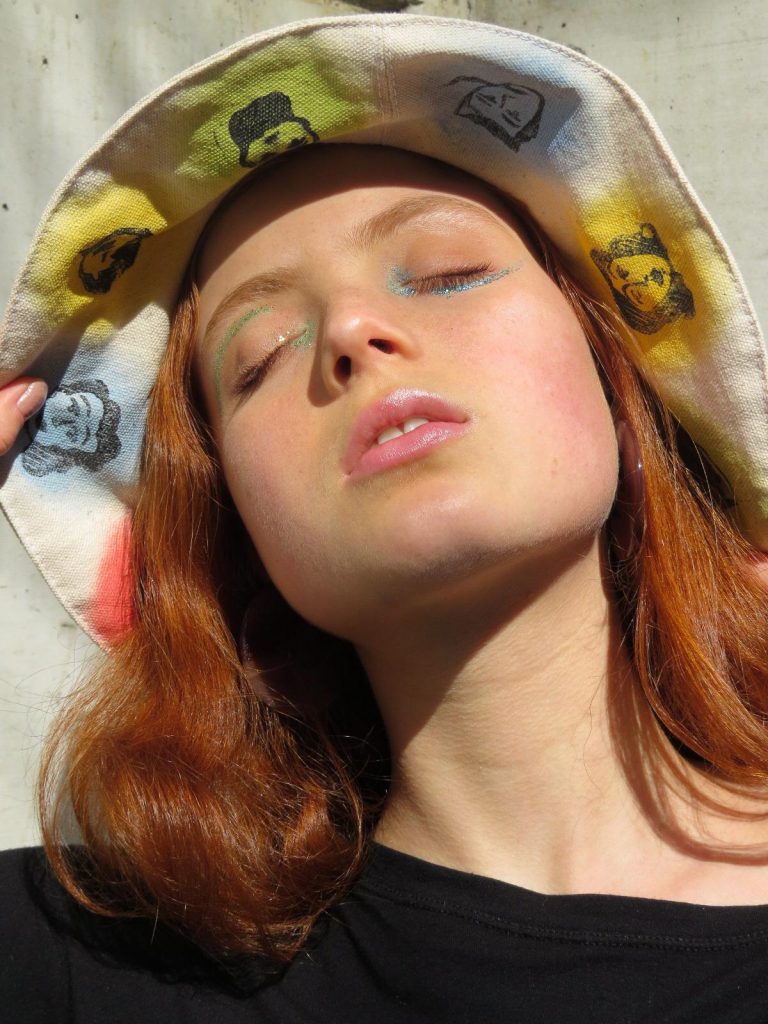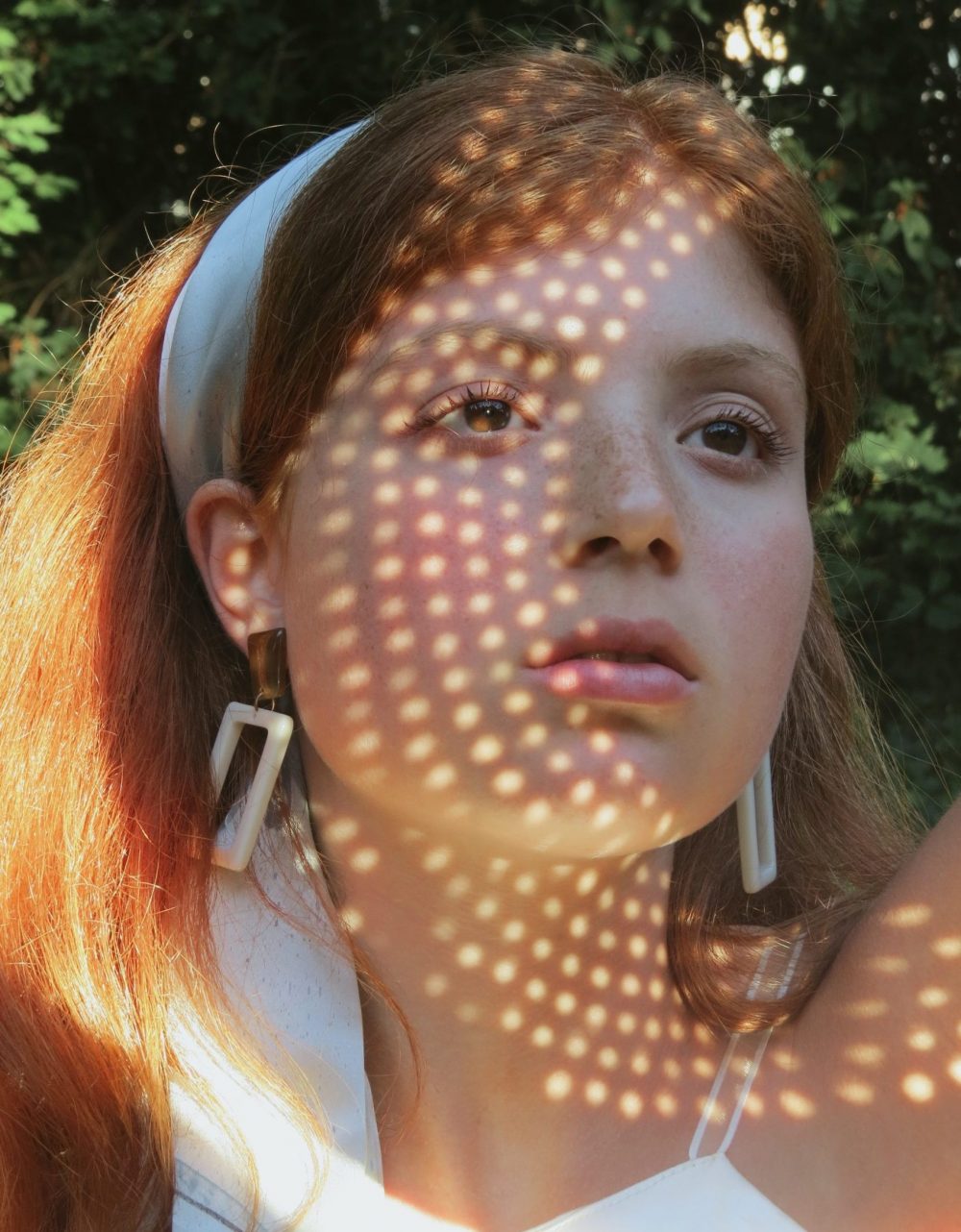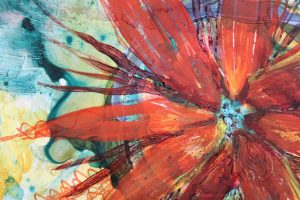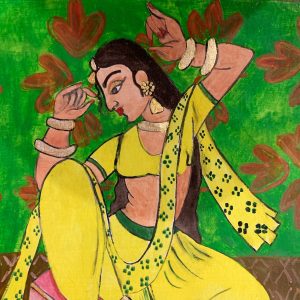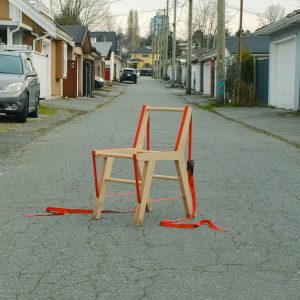Patterning Stories
Karen Fichmann
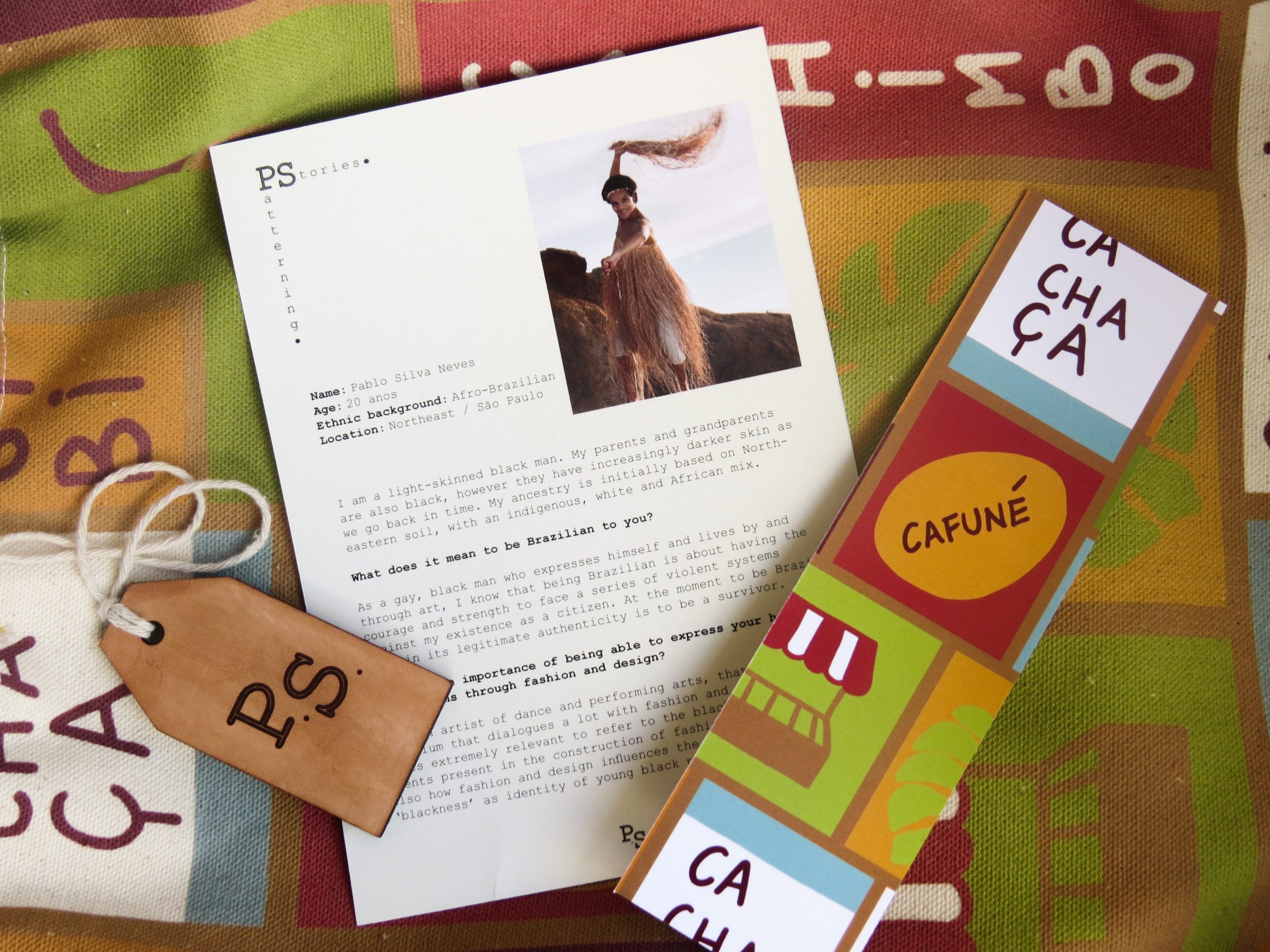
PATTERNING STORIES
PROJECT OVERVIEW
What we wear is the first way we have to communicate who we are. This project is enhancing that belief, and transforming pieces into instruments for storytelling. Pieces that empower people about their own cultures while teaching others the meaning behind each pattern.
Patterning Stories is a collection of soft products including five pieces of clothing, six bags, and one hat, that translate Brazil’s cultural diversity through the use of patterns.
WHY?
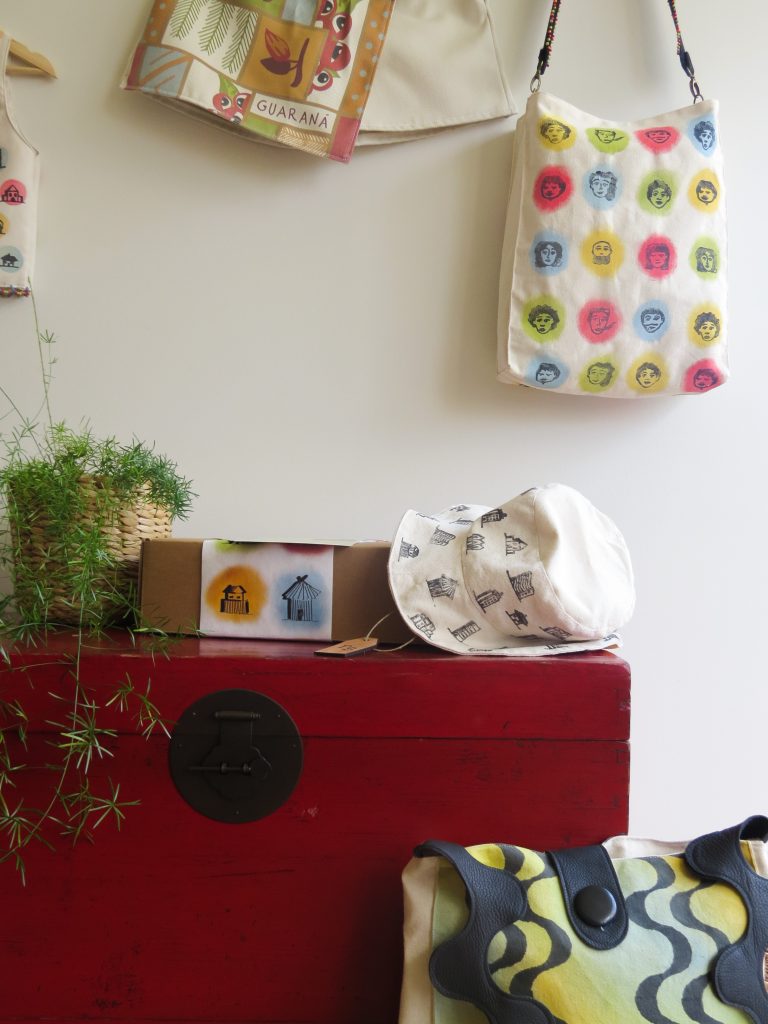
APPROACH TOWARDS SUSTAINABILITY
When we talk about Fast Fashion and fast consumption, one of the biggest issues is the fact that the products are not truly valued and pieces become disposable. This project is a proposal for a business that fights that issue by creating a stronger relationship between designer – product – consumer.
TARGET
This collection is not only targeted to Brazilians who have a connection to the story and can feel empowered by its message, but also to anyone who is initially attracted to the pieces visually, and from there learn about their cultural meanings and take a more personal approach towards the garments.
HISTORICAL BACKGROUND
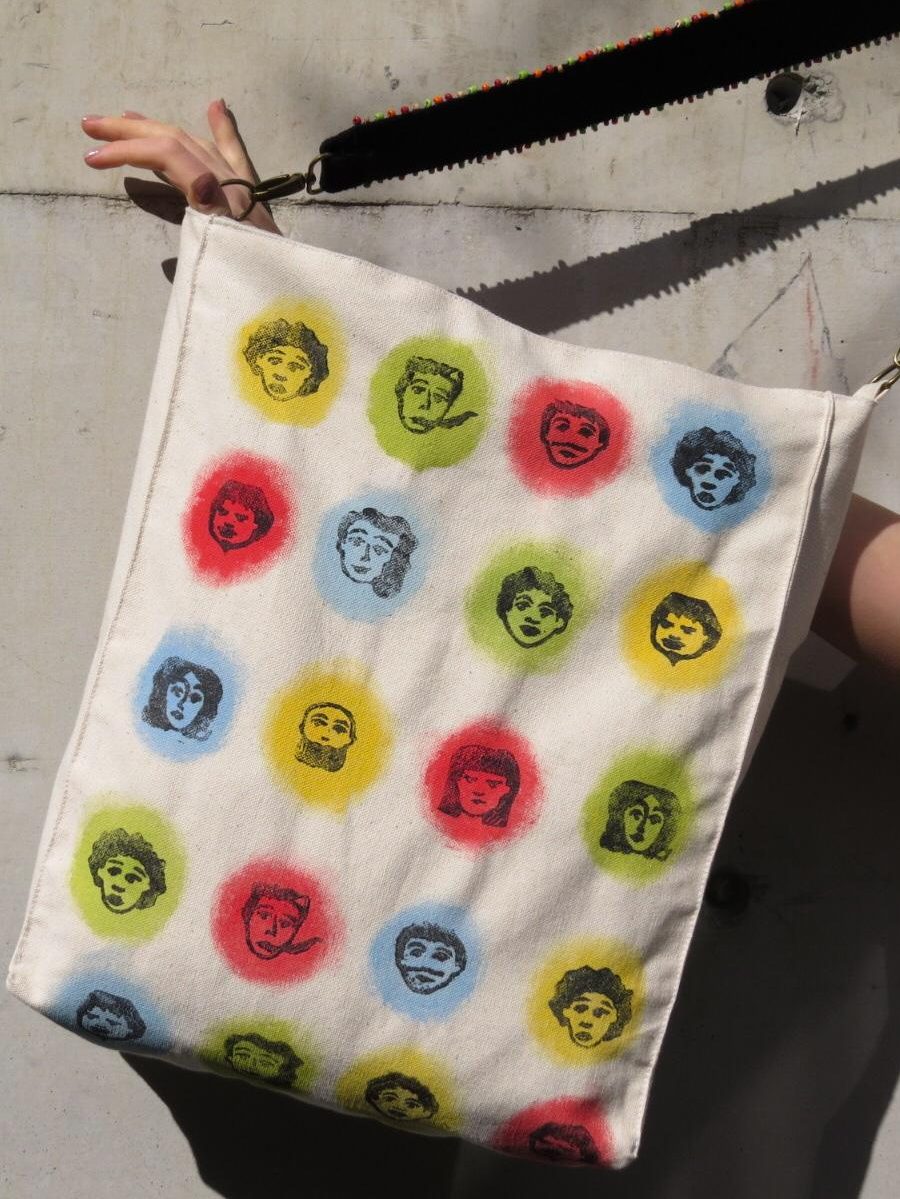
For thousands of years a wide number of indigenous tribes lived in the territory we today call Brazil. These tribes had different languages, customs, and lived independently from one another. There is evidence of the existence of more than 100 distinct ethnicities of indigenous people before colonization.
The first documentations of the area started in the 1500’s, with the arrival of the Portuguese colonizers. Around 1550 the Portuguese expanded their hold on the area, and began to bring African slaves, coming from many countries in the neighbour continent, to Brazil, where they were forced to work at coffee and sugar cane farms and mining for gold and diamonds.
Due to all of that history, the Brazilian people are considered some of the most diverse in the world. Made up mainly by Indigenous, Portuguese and African, but also other European and asian ethnicities as Italian, German and Japanese.
THE COLLECTION
RIO DE JANEIRO
The undulating lines present in both pieces can be seen on the sidewalks by the beaches of Rio de Janeiro, Brazil’s most famous city.
The favelas (the houses on the pattern of the pants) are slums, which are responsible for making culture flourish in Rio de Janeiro. The art, fashion and music produced in the favelas are slowly being recognized for its value.
PORTUGAL
(THE COLONIZATION)
Brazil’s culture was very much determined by being a portuguese colony for hundreds of years. These two pieces carry the portuguese mandalas, which are traditional
from the tiles of Portugal. Portuguese aesthetic is known for its use of blue and yellow shades. In the dress you can also see the toucan, one of the birds native of Brazil, a tropical country rich for its fauna and flora.
THE FRUIT OF THE NORTH
This pattern represents the fruit native from the Amazon forest (Cacao, Açai, and Guaraná) which were originally used by the indigenous tribes and over time became popular in the whole country.
The vest was fully handpainted, creating an effect in which the pattern is gradually going up from the hem to the waist, mixing in with the original colour of the fabric. Different printing techniques were used throughout the whole collection, such as stamps and stencils.
NORTH AND NORTHEAST
The North and Northeast of Brazil are the regions of the country with the largest indigenous and African cultural influence. The pattern on the right represents the African influence in Brazil by showing the words that were introduced into the Brazilian vocabulary from African slaves. The pattern in the skorts follows a similar visual style as the bag, however it represents the many indigenous tribes and their communication through art.
CULTURAL DIVERSITY
These patterns are about cultural diversity as a whole. Brazilians have a sense of connection in knowing that they are a group of mixed people, nobody is only part of one culture, there are many stories hidden in every face. The cultural diversity in Brazil is reflected in every aspect of life, including the architecture. The rural and urban spaces are stages for storytelling.
PACKAGING
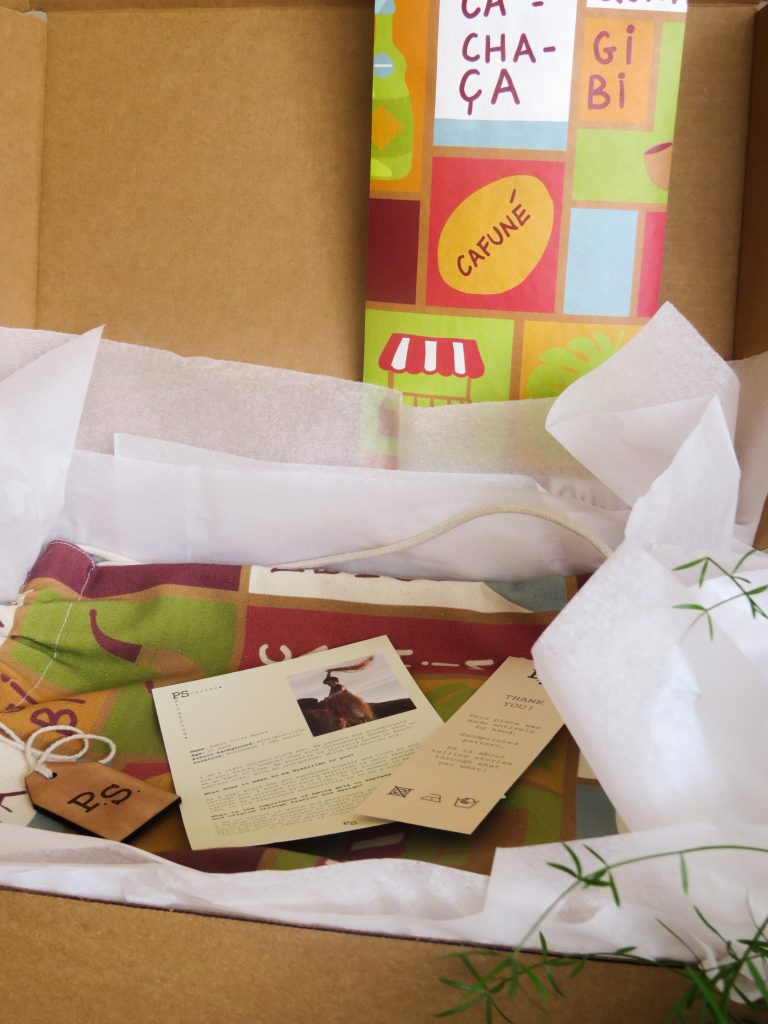
The packaging includes one paper wrapped around the box (in the same pattern as the piece chosen), one leather tag with the PS logo, a thank you card that can be used as a book mark, and a community involvement card.
COMMUNITY INVOLVEMENT
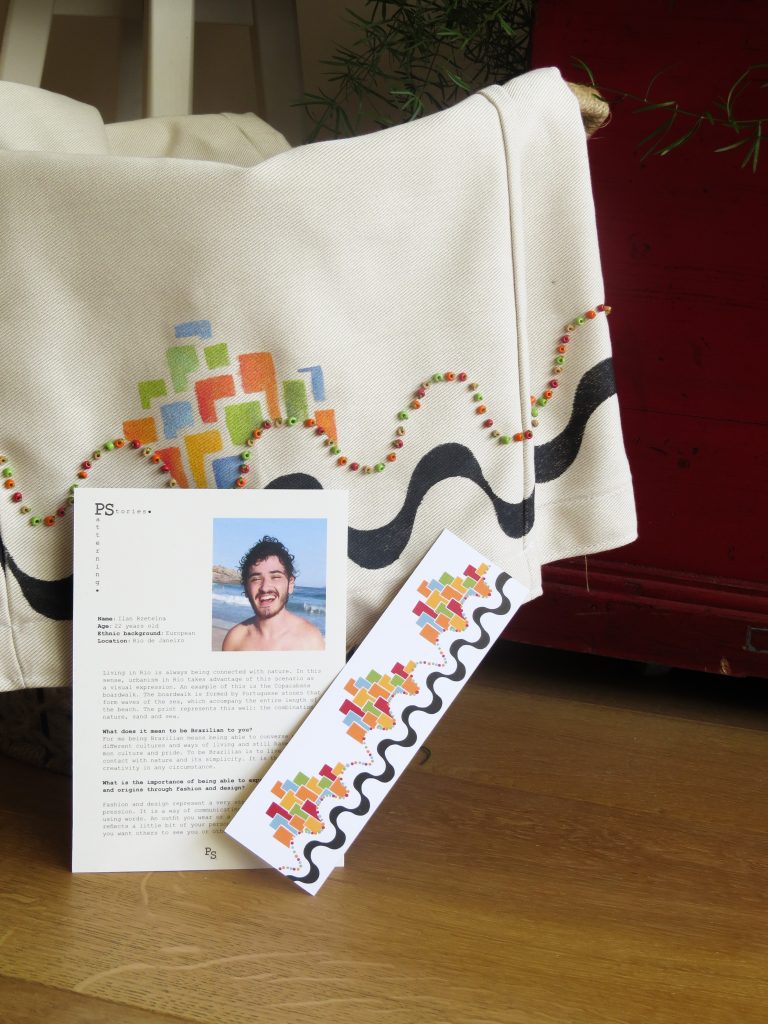
The Brazilian community was engaged in Patterning Stories since the first stage of the project, the development of the patterns, to the last stage, the packaging. The community involvement cards included in the box, have testimonials by Brazilian people from different ethnic backgrounds in which they share their feelings towards representing culture through design. The cards make the products and the stories behind them, more personal to possible users.
